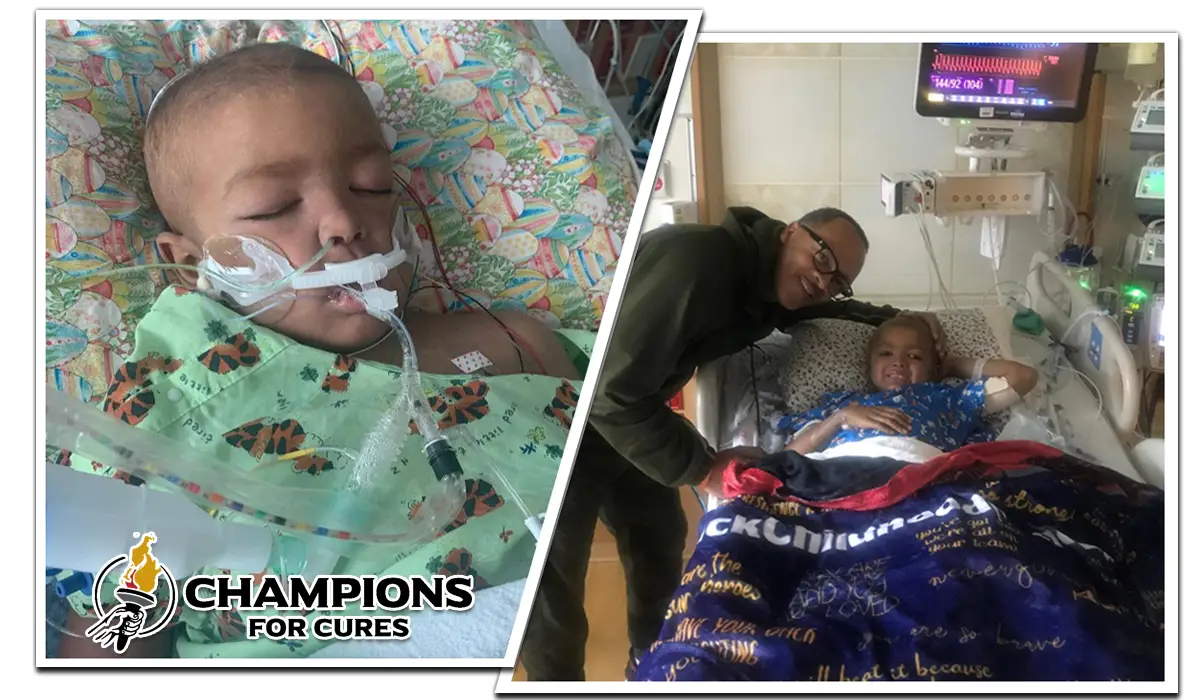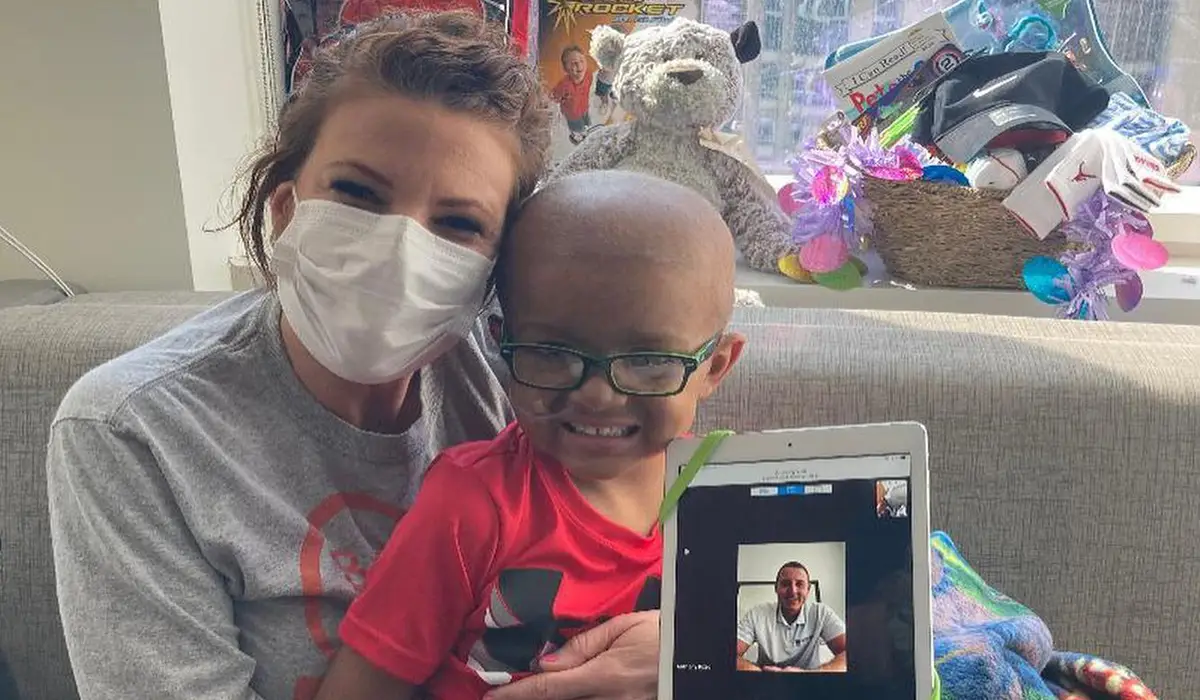
Managing Pain And Other Symptoms: Enhancing Comfort In Cancer Care
Increasing Comfort In Cancer Care: How To Manage Pain And Other Symptoms
At Champions For Cures, we recognize the profound impact that managing pain and other symptoms can have on the quality of life for cancer patients. Our mission goes beyond fundraising; we strive to support families fighting cancer in our local community. Explore our events for golf enthusiasts, learn about our champions, or nominate a winner. Join us in making a difference through a donation, or discover ways to give and how to be a sponsor. Together, we can enhance comfort in cancer care.
Introduction To Pain And Symptom Management In Cancer Care
Understanding The Importance Of "Managing Pain And Other Symptoms"
Pain and other distressing symptoms can significantly affect the quality of life of cancer patients. Effective pain management is not merely about alleviating discomfort but improving overall well-being and ensuring patients can lead fulfilling lives.
The Impact On "Cancer Patients": Why Pain Management Matters
Managing pain and other symptoms is a crucial aspect of care for cancer patients. It allows them to participate more fully in daily activities, spend quality time with loved ones, and maintain a sense of normalcy during treatment.
Enhancing "Quality Of Life" Through Comprehensive Care
Comprehensive care involves a multifaceted approach to pain management. By addressing both physical and emotional needs, we can enhance the quality of life for cancer patients, supporting them in their journey toward recovery.
Medical Approaches To Pain Management For Cancer Patients
Utilizing "Medications" In Pain Management: A Closer Look
Medications play a vital role in pain management. From over-the-counter pain relievers to prescription opioids, the proper medicine can provide significant relief tailored to the individual needs and preferences of the patient.
The Role Of "Physical Therapies" In Managing Pain And Other Symptoms
Physical therapies offer a non-pharmacological approach to pain management. Techniques such as massage, acupuncture, and physical exercise can complement medical treatments, providing additional comfort and support.

Integrating "Complementary Approaches" For Holistic Pain Management
Complementary approaches like mindfulness, meditation, and herbal supplements can be integrated into a comprehensive pain management plan. These methods align with our philosophy at Champions for Cures, where we believe in a holistic approach to care.
Individualized Care: Tailoring Symptom Management Strategies
Assessing Patient Needs For "Individualized Care" In Pain Management
Individualized care is at the heart of effective symptom management. By understanding each patient’s unique needs, preferences, and values, healthcare providers can develop personalized strategies to manage pain and enhance comfort.
Implementing "Symptom Management" Plans: A Collaborative Approach
Collaboration between healthcare providers, patients, and families is essential for successful symptom management. Open communication and shared decision-making ensure that care is aligned with the patient’s goals and values.
Monitoring And Adjusting Treatment For Optimal "Quality of Life"
Ongoing monitoring and adjustment of treatment plans are vital to ensure optimal quality of life. Regular assessments allow for timely modifications, ensuring that pain management strategies remain effective and responsive to the patient’s changing needs.
Conclusion: The Future Of Pain Management And Comfort In Cancer Care
Emphasizing The Importance Of "Managing Pain And Other Symptoms"
The importance of managing pain and other symptoms cannot be overstated. It’s a fundamental aspect of cancer care that requires attention, expertise, and compassion.
The Evolving Landscape Of "Pain Management" Techniques And Approaches
Pain management is continually evolving, with new techniques and approaches being developed. At Champions for Cures, we stay abreast of these advancements and provide the best possible care.
A Call To Action: Prioritizing "Individualized Care" For Enhanced Comfort
Prioritizing individualized care is not just a clinical imperative; it’s a moral one. Every patient deserves respect tailored to their unique needs, and we are committed to making this a reality.
Join us at Champions For Cures in our mission to enhance comfort in cancer care. Your support, whether through a donation, becoming one of our sponsors, or attending our events, can make a profound difference in the lives of cancer patients. Learn about our champions, nominate a champion, and discover ways to give. Together, we are Champions for Cures. Thank you.
Frequently Asked Questions
Managing pain and other symptoms in cancer care involves a comprehensive approach to alleviate physical discomfort and emotional distress. It includes using medications, physical therapies, and complementary approaches to enhance the quality of life for cancer patients.
Pain management is vital for cancer patients as it directly impacts their comfort, well-being, and overall quality of life. Effective management of pain and other symptoms allows patients to participate in daily activities and improves their emotional state.
Medications used for pain management in cancer care range from over-the-counter pain relievers to prescription opioids. The choice of medication depends on the type and severity of pain, and healthcare providers tailor the treatment to each patient’s needs.
Physical therapies such as massage, acupuncture, and physiotherapy significantly manage pain and other symptoms. They can alleviate muscle tension, improve mobility, and provide relaxation, enhancing the overall comfort of cancer patients.
Complementary approaches include non-traditional therapies like meditation, yoga, and aromatherapy. They are integrated into a comprehensive pain management plan to provide relaxation, reduce stress, and improve cancer patients’ overall quality of life.
Individualized care in symptom management involves assessing each patient’s pain and symptoms and tailoring interventions accordingly. It ensures patients receive the most effective, personalized care to alleviate their suffering.
Effective symptom management significantly enhances the quality of life for cancer patients. Addressing both physical and emotional aspects of pain ensures that patients experience comfort and improved well-being throughout their treatment journey.
Family members and caregivers play a vital role in pain management. Their support, understanding, and involvement in the care plan can contribute to effective symptom management and enhance cancer patients’ comfort and quality of life.
Challenges in managing pain and other symptoms include assessing each patient’s unique needs, balancing medications to avoid side effects, and integrating various therapies. To overcome these challenges, collaboration between healthcare providers, patients, and families is essential.
Advances in medical science are leading to more effective medications, innovative physical therapies, and a better understanding of complementary approaches. These developments contribute to more comprehensive and individualized care, enhancing comfort in cancer care.
